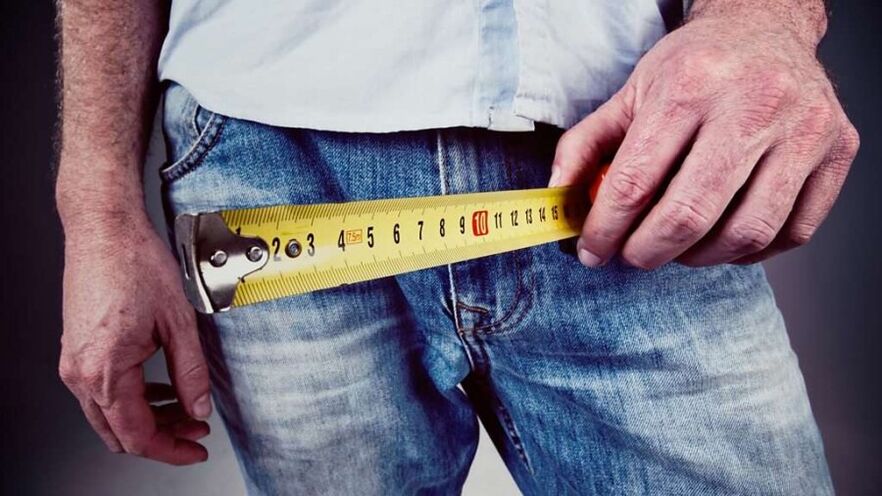
Sexual arousal in men is a complex process. This includes the processing of external information (what the stronger sex sees and hears), psychological readiness for sex, anticipation of pleasure and the body's immediate physiological reaction. How this process occurs in men and how to speed up arousal is useful for every woman to know.
Where does it all begin?
The onset of arousal is given by a variety of sensory stimuli. The smell of a girl, her kisses and touches, external appearance (especially without clothes) stimulate brain centers that transmit a signal to the genitals through the nervous system.
Hormones are involved in this process. John Bancroft, an American sexologist and 4th part-time director of the Kinsey Institute for Sexual Research, claims that the level of testosterone in the blood determines the degree of excitability in a man. This conclusion was drawn as a result of a study whose results were published in the Journal of Endocrinology in the article "Endocrinology of sexual arousal".
As a result, an erection occurs. This is the filling of the corpora cavernosa of the penis with blood. The muscles contract and impede venous flow, causing the penis to harden, enlarge (on average 3-4 times) and feel pulsation. Often this reaction occurs within seconds of sexual stimulation. Interestingly, during foreplay, an erection can weaken and strengthen again - this is absolutely normal.
The British Journal of Urology International published a study carried out among 20 thousand men. The sizes of their genitals were measured. Men from all over the world participated. As a result, it turned out that the average size of the penis at rest is 9. 16 cm, and during erection - 13. 12 cm.

There are three types of erections. One of them – nocturnal (spontaneous) – occurs without sexual connotations. The other two accompany sexual arousal in men.
Psychogenic (or psychological) - occurs against the background of excitation of brain centers. Nerve impulses are transmitted to the spinal cord and then along the nerves to the reproductive system.
Reflex – appears as a result of touching the penis. As this organ has many nerve endings and its skin is extremely sensitive, even light touches can cause irritation and blood flow to the penis.
In addition to the erection, the man's pulse quickens, breathing becomes faster and blood pressure increases (as in the female half of the population). The scrotum thickens and may become denser, and the testicles rise. The upper part of the body turns slightly red. A lubricating fluid is released, facilitating the passage of sperm through the canal.
What turns men on?
In addition to a beautiful photo (a woman naked, or dressed in lace lingerie, dancing, lying seductively, etc. ), foreplay plays a big role. Men also need it to make the arousal as strong as possible. The safest way for a girl to turn on a guy is to stimulate her sensitive areas. These include:
- Head, neck and chest;
- Belly (mainly the lower part) and back;
- Genital organs and adjacent areas.
Foreplay begins, in most cases, with a kiss. A passionate kiss from a girl can already cause an erection and put a guy in a good mood. There are many nerve endings in the labia, in addition, he feels his partner's sexuality and anticipates the upcoming sex. At this time, the occipital area can be stroked with your hands, this area is also very sensitive. Many men like it when their earlobes are kissed and bitten, but you need to be careful with this, as there are those who categorically do not like this process.
The lower abdomen is an excellent area for fondling before oral sex (from the belly button down). The back is suitable for erotic massage. By the way, this can be done not only with your hands, but also with your lips, hair and bare chest.
With the genitals, everything is clear - any movement in this area is welcome and causes sexual excitement in men. You must be careful with sudden movements; young men may fear for the security of their dignity. Blowjobs, manual techniques - all this maximizes the partner's desire. Nearby areas include the inner thighs, which can be stroked with your hands.

Representatives of the stronger sex quickly become excited. But they need more time (from several hours to a day) to rest and fully recover after sex than women, as the process takes a lot of their energy. Therefore, repeated sexual arousal may not occur quickly for all men and this should be treated with understanding.
Sexual arousal in men
When you see a partner who is sexually attractive to you, you become excited first psychologically and then physically. But how this happens is a question little known by most people. What does science say? She considers arousal to be a physiological sexual response.
Or rather, its first phase. In other words, a whole series of processes. They do not show gender differences: increased breathing and heart rate, the appearance of muscle tension, increased blood pressure, increased salivation, dilated pupils, the appearance of redness and goose bumps, as well as nipple erection.
With sexual arousal, psychological behavior, change in gaze and voice. This is due to the release of hormones into the blood, which act on the body like a drug. In men, in addition to the above, there is an erection of the penis, elevation of the scrotum to the pubis, its swelling and thickening, in addition to the release of pre-ejaculate to lubricate the head.
In women, additional lubrication, thinning or, conversely, enlargement of the labia majora (depending on whether the woman gave birth or not), erection of the clitoris, enlargement and enlargement of the uterus, tension of the pubosacral muscles and an increase in the length of the vagina occur.
By the way, if in men redness of the skin is observed in rare cases, in women there is a flow of blood not only to the clitoris and labia, but also to the chest and back. In some women, this flush is so noticeable that during and after orgasm, the area between the chest, shoulders and neck may even turn scarlet.
Why are there so many reactions? They are associated with a flow of blood, which the body carries out to achieve greater sensitivity of the genital organs, and with readiness for the second phase of the cycle of sexual reactions - sexual intercourse. After the excitement phase, there are: a plateau phase (sexual intercourse), an orgasm phase and a phase of completion of sexual reactions.
The excitement phase may not occur. This is often a physical problem rather than a psychological one. Erectile dysfunction (impotence) is a disorder in which the strength of an erection is insufficient for sexual intercourse. There are three types of impotence: psychological, organic and mixed.
In most men, erectile dysfunction is associated with the organic form due to various diseases. The most common causes are cardiovascular disease, diabetes and hormonal disorders. The quality of blood supply to organs and hormonal levels are disturbed.
With some diseases, bad habits, taking certain medications, especially those that affect the central nervous system, and a sedentary lifestyle, blood flow to the pelvic organs is weakened, which is why the main sexual arousal reaction in men does not occur - the filling of the corpora cavernosa with blood.
Drugs, alcohol and smoking affect not only the physical state, but also the psychological one, which is why impotence passes from an organic to a mixed form. You cannot delay this situation, in principle it can be easily corrected. You need to consult a urologist or sex therapist.
Men become sexually aroused much more often than they reach orgasm. Prolonged abstinence can cause serious harm to the body in general and the genitals in particular. Women's favorite motto "we will excite you and we will not let you" is good in moderation - you should not abuse this type of entertainment. Sexual dissatisfaction seriously affects not only physical but also mental health. The man becomes nervous, angry, irritated. Regular orgasm is an important condition for the normal functioning of the body. And there is practically no difference in the way it is obtained - during sex or masturbation.
















































































